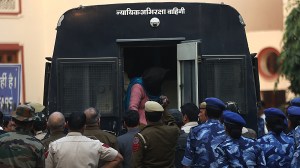Stay updated with the latest - Click here to follow us on Instagram
Cong-NCP govt rapped for failure in PDS by CAG
Cong-NCP govt gave Rs 2,012 cr foodgrains to ineligible families thus depriving 26.69 lakh BPL families.
The Congress and NCP government had distributed 42.33 lakh metric tons of foodgrains worth Rs 2,102. 71 crore to ineligible beneficiaries, thus depriving 26.69 lakh families reeling under below poverty line during 2008-13. The failure was due to non-revision of BPL list every year as mandated by rules laid down by union government to promote food for all across states.
The Comptroller and Auditor General of India report on economic sector for the year ending 2013, exposed the serious shortcoming in the
Maharashtra governments public distribution (PDS) which is handled by the ministry of food and civil supplies and consumer protection
department. The ministry was held by NCP’s senior minister Anil Deshmukh.
Interestingly, PDS was the ambitious project of the UPA government. The CAG report states there was failure on part of the state to ensure regular monitoring to delete and enroll the genuine families under the BPL to avail of the food grains subsidy. The wheat, rice, turdal and edible oils were provided at subsidized rates for BPL category.
The CAG which has rapped the Congress-NCP government on several counts said, “The department budgeted and received Rs 1,284.42 crore as subsidy towards foodgrains against the actual subsidy of Rs 591.92 crore, resulting in excess withdrawal of subsidy amounting to Rs 692.50 crore. Due to non-lifting of allotted quotas of rice and wheat by the state government, 16.09 lakh MT under BPL and 5.01 lakh MT under antyodaya anna yogna lapsed during 2008-13.”
What is more shocking is the state government’s decision to purchase rice from open market without lifting full quota from GoI that led to
an additional financial burden of Rs 10.91 crore. It observed that joint inspections of foodgrains before their lifting from FCI were not conducted by the department during the period 2008-13.
In case of scheme of direct transfer of cash subsidy on kerosene oil from August 2012 and release of Rs 10 crore by GOI, the scheme could be implemented partially only in three out of six districts as of March 2013. Only 34 out of 1,068 vehicle tracking systems, installed
to ward off en-route pilferage and diversion of kerosene oil were functional, according to the findings.
The monitoring mechanism of the scheme was weak. There was shortfall of 63 per cent and 39.02 per cent in inspection of godowns and fair price shops respectively, while the requisite numbers of vigilance committee were not fully constituted at various levels.







